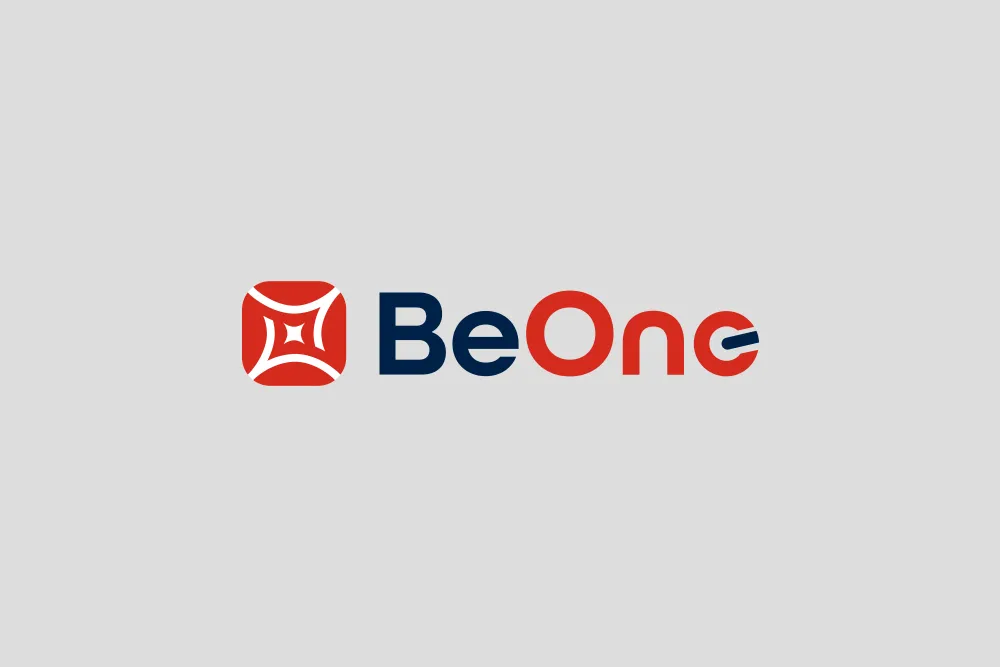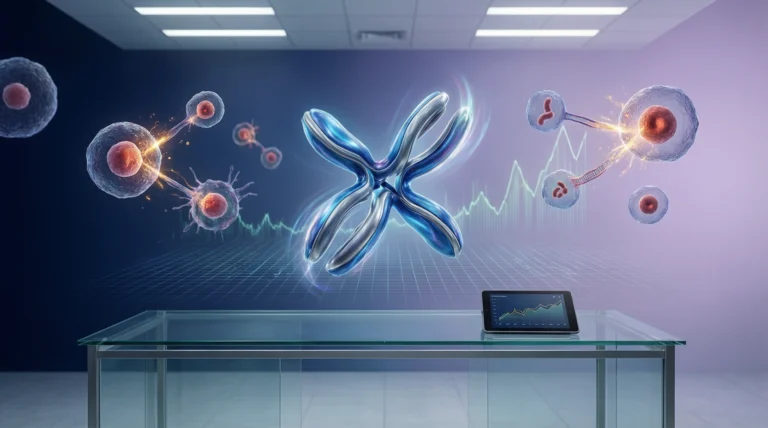
BeOne Medicines Announces Positive Topline Results from Phase 1/2 Study of Sonrotoclax in Relapsed or Refractory Mantle Cell Lymphoma
BeOne Medicines Ltd. (Nasdaq: ONC; HKEX: 06160; SSE: 688235), a global oncology company focused on advancing innovative treatments for hematologic malignancies, announced today encouraging topline results from its ongoing Phase 1/2 trial evaluating sonrotoclax, a next-generation and potentially best-in-class investigational BCL2 inhibitor. The study was conducted in adult patients with relapsed or refractory (R/R) mantle cell lymphoma (MCL) who had previously received treatment with a Bruton’s tyrosine kinase inhibitor (BTKi) and anti-CD20 therapy—two established standards of care in this setting.
According to the company, the trial achieved its primary endpoint and delivered strong signals across several key secondary measures of efficacy, positioning sonrotoclax as a potentially important new treatment option for a patient population with historically poor outcomes. BeOne has confirmed that full clinical data from the trial will be presented at an upcoming major medical congress.
Addressing a Critical Unmet Need in Mantle Cell Lymphoma
Mantle cell lymphoma is a rare and aggressive form of non-Hodgkin lymphoma (NHL), accounting for roughly 5–7% of all NHL cases. Despite advances in targeted therapies such as BTK inhibitors and anti-CD20 monoclonal antibodies, the disease remains difficult to treat, particularly once patients relapse or become refractory to standard therapies.
Patients who fail both BTK inhibition and anti-CD20 therapy face limited therapeutic options. Median survival in this setting is measured in months rather than years, highlighting the urgent need for novel treatments that can improve both response rates and durability of benefit.
“For people with relapsed or refractory mantle cell lymphoma, the disease is aggressive, the treatment landscape fragmented, and the outcomes unacceptably poor,” said Lai Wang, PhD, Global Head of R&D at BeOne Medicines. “These topline results for sonrotoclax underscore its potential to deliver meaningful and durable responses and offer the first BCL2 inhibitor for patients with R/R MCL, if approved. These data add to the remarkable progress we’ve seen over the past five years in treating B-cell malignancies, and I’m proud that BeOne has played an impactful role in that transformation with our leading BTK inhibitor.”
Study Design and Patient Population
The clinical trial, known as BGB-11417-201 (NCT05471843), is a global, multicenter, single-arm, open-label Phase 1/2 study. It was specifically designed to evaluate the safety, tolerability, and efficacy of sonrotoclax in a heavily pretreated MCL patient population.
A total of 125 adult patients with relapsed or refractory MCL were enrolled. All had previously received at least two major forms of therapy: anti-CD20 therapy and a BTK inhibitor. This represents a particularly high-risk group of patients, for whom treatment choices are very limited.
The study was conducted in two parts:
- Part 1 (Dose Escalation):
- Enrolled 22 patients.
- Patients received daily sonrotoclax at either 160 mg or 320 mg doses.
- Primary objectives: assess safety, tolerability, pharmacokinetics, and determine the recommended dose for further development.
- Part 2 (Dose Expansion):
- Enrolled 103 patients.
- All patients received the recommended 320 mg daily dose of sonrotoclax, administered after a standard dose ramp-up period designed to minimize the risk of tumor lysis syndrome (TLS), a known risk with BCL2 inhibitors.
- Primary objective: evaluate overall response rate (ORR) as assessed by an independent review committee (IRC).
- Secondary endpoints included complete response (CR) rate, duration of response (DOR), progression-free survival (PFS), and safety.
Efficacy Outcomes
The trial successfully met its primary endpoint of overall response rate. Treatment with sonrotoclax produced clinically meaningful responses, demonstrating that the drug has the potential to significantly benefit this patient population.
While detailed numerical data have not yet been disclosed pending presentation at a medical meeting, BeOne reported that sonrotoclax showed promising results across multiple efficacy endpoints, including:
- Overall Response Rate (ORR): A meaningful proportion of patients achieved tumor shrinkage, validating the drug’s mechanism of action.
- Complete Response (CR) Rate: Several patients experienced complete disappearance of detectable disease, an especially important outcome for long-term benefit.
- Duration of Response (DOR): Responses were durable over time, a key consideration in relapsed/refractory disease.
- Progression-Free Survival (PFS): Early signals suggest the potential for improved time before disease progression.
These findings are particularly noteworthy given the heavily pretreated nature of the patient cohort, where historical benchmarks show very limited activity for other available options.
Safety and Tolerability
In terms of safety, sonrotoclax was described as generally well tolerated. Adverse events were consistent with expectations for BCL2 inhibition and were manageable with standard supportive care measures.

Importantly, the safety profile observed in this trial appears favorable compared to earlier-generation BCL2 inhibitors, suggesting that sonrotoclax’s next-generation design may offer advantages in terms of tolerability and patient compliance.
Regulatory Strategy and Global Development
The positive topline data represent a significant milestone in the broader development program for sonrotoclax. BeOne has laid out a clear path toward regulatory submissions and confirmatory studies:
- U.S. and Global Submissions:
BeOne intends to submit the new data to the U.S. Food and Drug Administration (FDA) and other global regulatory agencies to support potential approval of sonrotoclax for R/R MCL. - China NMPA Review:
New drug applications for sonrotoclax in R/R MCL and relapsed/refractory chronic lymphocytic leukemia (CLL) / small lymphocytic lymphoma (SLL) are currently under review by the Center for Drug Evaluation (CDE) of the China National Medical Products Administration (NMPA). These submissions are being considered for accelerated approval, underscoring the urgency of bringing the drug to patients. - Confirmatory Phase 3 Trial (CELESTIAL-RR MCL):
BeOne has already initiated a Phase 3 confirmatory study of sonrotoclax in relapsed/refractory MCL, known as CELESTIAL-RR MCL (BGB-11417-302; NCT06742996). The first patient was enrolled earlier this year, and the trial is designed to further validate efficacy and safety results in a larger population. - Orphan Drug Designation:
The U.S. FDA previously granted Orphan Drug Designation to sonrotoclax for the treatment of MCL. This designation is expected to provide potential regulatory incentives, including tax credits for clinical testing, user fee waivers, and market exclusivity upon approval.
Building a Hematology Franchise
The successful advancement of sonrotoclax adds another cornerstone to BeOne’s growing hematology franchise. According to the company, this franchise now includes three foundational medicines aimed at meeting the needs of patients with B-cell malignancies, a therapeutic area where BeOne has already established leadership with its BTK inhibitor.
By combining expertise in BTK inhibition with the development of a next-generation BCL2 inhibitor, BeOne is positioning itself as a company capable of addressing multiple pathways that drive malignant B-cell survival and proliferation. This strategy reflects an effort not only to extend patient survival but also to explore potential combination approaches that may deliver even more durable disease control.
With its promising efficacy signals, manageable safety profile, and strong regulatory momentum, sonrotoclax has the potential to become the first approved BCL2 inhibitor specifically for mantle cell lymphoma. If successful, this would mark a major advance for patients who currently have few treatment options once frontline and second-line therapies fail.
BeOne’s continued investment in rigorous late-stage clinical trials will be critical to confirming the results seen in this Phase 1/2 study. At the same time, the company is also exploring broader applications of sonrotoclax in other hematologic malignancies, including CLL/SLL, where BCL2 inhibition has already demonstrated substantial clinical value.
“Bringing forward novel targeted therapies like sonrotoclax is central to our mission,” said Dr. Wang. “Our commitment is not only to advance science but also to deliver new hope for patients who face life-threatening cancers with limited treatment choices.”
The topline results from the Phase 1/2 BGB-11417-201 trial of sonrotoclax represent an important step forward in the treatment of relapsed/refractory mantle cell lymphoma. While full data are awaited, the findings suggest that BeOne’s next-generation BCL2 inhibitor could fill a critical gap in the current treatment landscape.
As the company prepares for regulatory submissions and a pivotal Phase 3 confirmatory trial, sonrotoclax is emerging as a potential best-in-class therapy—one that could reshape the outlook for patients with relapsed or refractory MCL worldwide.




